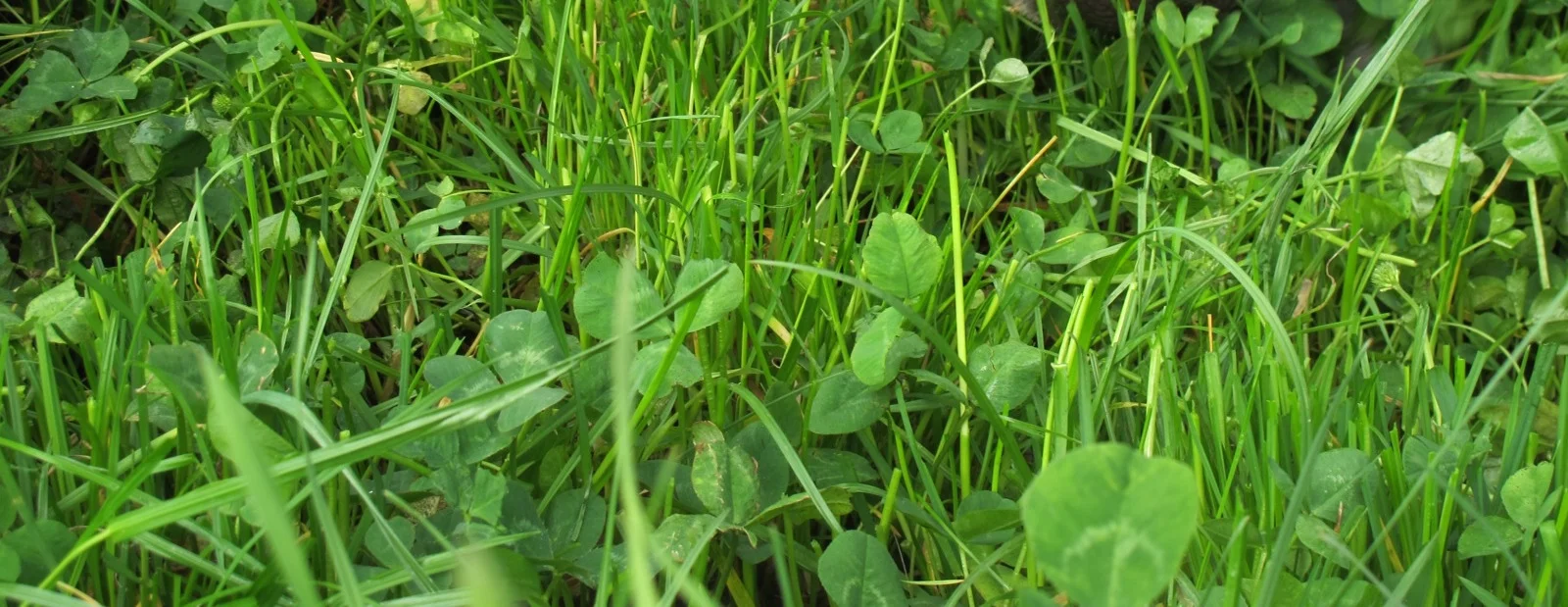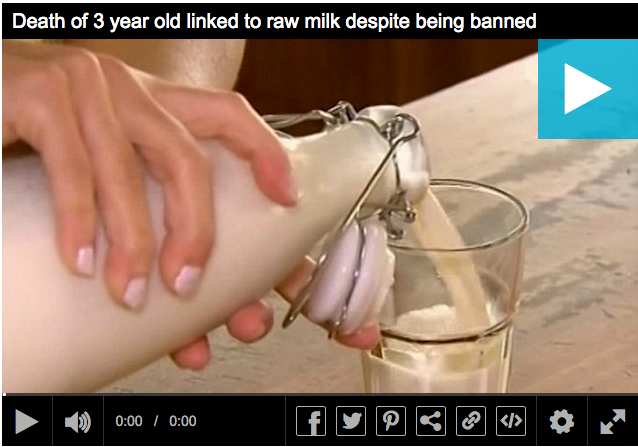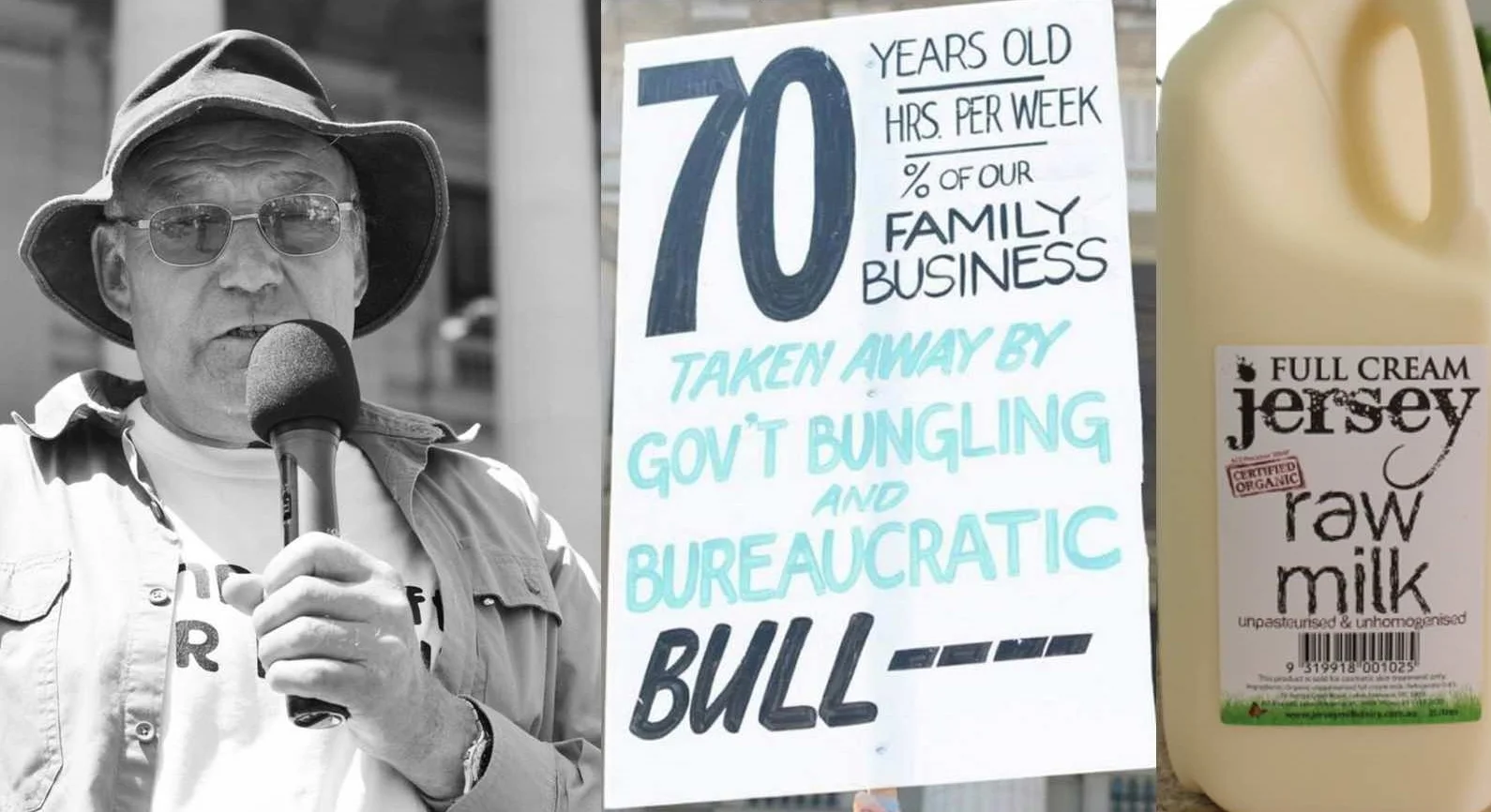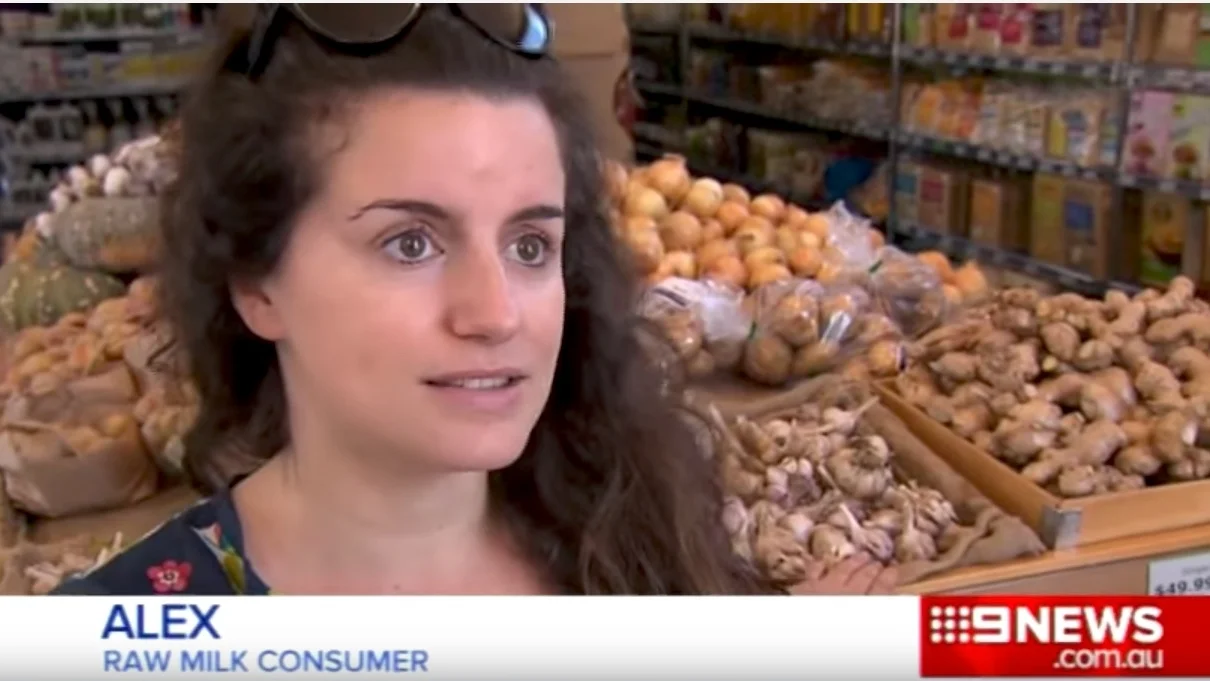Update: read the coroner's report here.
A review
Last year on 28 December 2014, new Victorian Minister of Consumer Affairs Jane Garrett announced that a bitter, gag inducing agent be included in all raw milk for sale in Victoria. This was just over two weeks after the The Herald Sun reported on 10 Dec 2014 that one Mornington Peninsula child sadly died and 4 others fell ill allegedly 'after drinking raw milk'. Minister Garrett also said that the Victorian government was not willing to wait for the outcome of a federal investigation and went ahead with new regulation over the holidays when people were unable to make an objection. To this day there seems to be no solid proof that the raw milk the children consumed is responsible for their illnesses. They became ill over a time period there were bad cases of gastroenteritis in Victoria that landed children in hospitals sick and dehydrated. The dairy whose milk was blamed for the death of the toddler, had their milk batch tested by a 3rd party laboratory. The milk that supposedly caused the illness tested negative for pathogens. The Australian media continues to say that "a child died after consuming raw milk". The coroner is yet to report.
The divide between raw milk consumers and health & food safety authorities have grown bigger over the years because of 'bath milk', the thriving blackmarket and more people experiencing for themselves the benefits of consuming raw milk. Many Health authorities believe that all raw milk can be dangerous and can contain dangerous pathogens and have to be pasteurised to be safe. An Australian Raw Milk Movement survey (from early 2015) show that raw milk consumers have become very educated thanks to the internet and doing their own research. They have learned that raw milk can be produced for human consumption, is digestible, not allergenic and do have many health benefits. They have also seen the various examples of people consuming safe, low risk raw milk in other countries and realised how far behind the rest of the world Australia is.
Video: 'My three kids all drink raw milk and they're fine': Farmer defends controversial product after death of child and says there is no reason for it to be banned Click on the picture to view video.
Raw milk pioneer Mark McAfee from Organic Pastures Dairy, teach that there are two kinds of raw milk: one intended for the pasteuriser and one intended for human consumption. They are two completely different products, they have different production standards and different expectations.
Milk tankers collect milk from countless Australian dairies to be co-mingled at the factory. If just one of those dairy's milk contains a pathogen (bacteria that are harmful to health) then it contaminates all the milk. Therefore the milk has to be pasteurised before it is safe to consume. However small dairies who grass-feed their cows, who manage their health holistically and produce the milk to specific hygiene controls, are able to take the necessary care to produce a top quality raw milk where pasteurisation is not necessary. Some Australian raw milk producers have already looked to US educators like Mark McAfee (from the Raw Milk Institute) and Charlotte Smith from RawMilkPro.com for advice on how to best produce safe, low risk raw milk for human consumption. Some have already implemented those standards in their own dairies. Australia need only to adopt existing standards for producing raw milk from organisations like the Raw Milk Institute, Food Standards Agency (UK) or from Food Safety Standards Australia and New Zealand (FSANZ), who currently regulate New Zealand's raw milk industry. Why leave Australia at a disadvantage when we have the same food safety regulator managing it in New Zealand?
In many of the articles and video clips about raw milk in Australia, we see a huge divide in the beliefs of food safety authorities and the beliefs of people who have been consuming raw milk for a long time. Raw milk drinkers know for a fact, that it can be produced for human consumption. Many Australian raw milk producers also know the standards and procedures based on international examples, but food safety authorities in Australia still maintain that there is only one standard for raw milk: pasteurisation.
Video: Why I feed my kids raw milk with journalist Mark Whittaker, watch video here.
Australian raw milk drinkers are not asking health authorities or science to endorse the safety of raw milk, because no food can be made a 100% safe, but they are asking for the right to consume it if they choose. The Australian Raw Milk Movement is asking for a regulated raw milk industry like New Zealand and other countries have.
The best legislation is to legalise and regulate the raw milk industry in Australia. Give raw milk producers the opportunity to monitor the cleanliness and safety from grass to glass, many of them are already doing it. It is the best way to increase safety, lower risk and eradicate the insecurity a blackmarket creates for both consumer and producer.
Read more on regulating raw milk in Australia here.
Video: Reg Matthews of Miranda Dale organic dairy was interviewed by Glenn Ridge of 3MP radio about Raw Milk in Australia and the need to create a regulated industry as in many countries like the US, England and Wales and NZ.
Video: WA's top doctors want unpasteurised milk banned after a Victorian toddler died and others fell ill. But retailers say raw milk is hugely popular in Perth and have no plans to take it off the shelves.
Video: Victoria's chief health officer claims at least four other children have fallen ill after drinking a cosmetic product sold in health food stores as bath milk. Some say it's the drink that can turn deadly but for dairy farmers Jason and Stacey Clark, it's delicious. Farmer Vicki Jones (whose milk was blamed for a toddler on the Mornington Peninsula's death) say she is not convinced it was the milk.
Audio: This interview is with Rebecca Freer from the Australian Raw Milk Movement. Rebecca has been a campaigner and activist against the Raw Milk ban laws in Victoria which has affected many organic dairy farmers and consumers.
Related Articles:
Push to lift raw milk ban in Australia despite the death of a child linked to the product - 20 Dec 2014
Victoria to introduce tough raw milk laws 28 Dec 2014
Victorian Government's new laws clamp down on raw milk farmers - 28 Dec 2014
Raw milk producers to be forced to make their product unpalatable under new Victorian regulations 28 Dec 2014
Protesters will demand raw milk be sold for drinking in Victoria - 29 Jan 2015
Forum to take urgent steps to prevent raw milk consumption - 30 Jan 2015
Raw milk for consumption still on the market despite new laws - 11 Feb 2015
Time lag in milk death - 26 Feb 2015
Why I feed my kids raw milk - 5 March 2015
More interesting articles worth reading:
Warning: contains images of raw milk - 30 Dec 2014
Raw Milk in Australia - the facts without the media hype 6 Jan 2015
Raw Milk - an open letter to Minister Jane Garrett 4 Jan 2015
Raw Milk in Victoria - a letter to Minister Jane Garrett 5 Jan 2015
The Health benefits of Raw Milk
Killer Milk 10 Dec 2015








